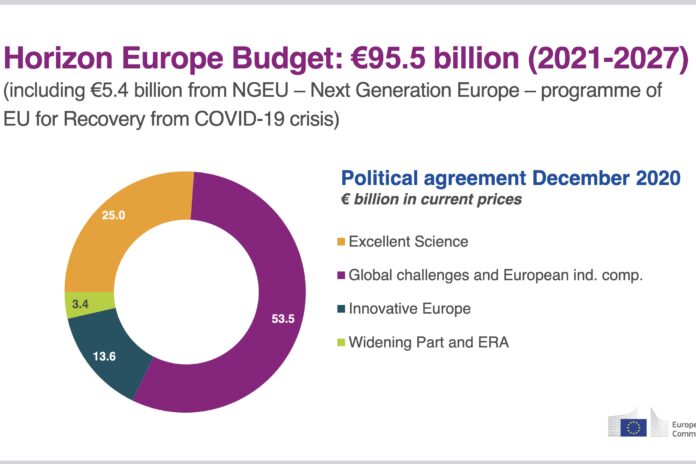“High-risk” vendor at the heart of Europe’s R&D while EC mulls legislation to ban its kit from member states’ networks
The Financial Times [subscription required] reports that Huawei, the Chinese telecoms equipment vendor, is involved in 11 projects that are part of the European Union’s Horizon Europe programme.
Horizon Europe funds research and innovation: Huawei is involved in projects including 6G, AI and cloud computing, the FT says. According to a Financial Times, the Chinese vendor is receiving up to 14% of funding per scheme.
This seems something of a conundrum, given that a number of EU member states and former member, the UK, have banned the use of Huawei equipment in their national communications infrastructure as a security measure. There is concern the equipment could be used by the Chinese state for espionage or even sabotage.
The European Union produced a toolkit for operators to use to protect themselves from “high risk” vendors – a thinly veiled reference to Huawei and other Chinese vendors such as ZTE.
Not about the money
The funding is not the issue so much as Huawei being bang in the middle of these research projects that are of profound strategic importance for Europe’s future. For example, Huawei provides elements of infrastructure and the AI platform for Horizon Europe.
It is hard to see how Huawei is considered a potential risk to individual nations’ security yet has this involvement in Europe’s R&D, not to mention the EU’s drive for regional self-reliance and autonomy, for example in chip design and manufacture,
Hardening of resolve?
At the end of May, the European Commissioner for Competition and Executive Vice President of the Commission, Margrethe Vestager, hinted that the Commission might toughen its stance towards “high-risk vendors” with legislation to prevent the use of their equipment in 5G projects.
This would be a big change in policy. The EU states agreed on a 5G Security Toolbox in 2020, which is a set of measures to reduce reliance on “high-risk vendors” in future networks. No specific vendors were named in the toolbox guidelines but say all vendors must be subjected to rigorous security tests.
At the time, Vestager was commending Portugal for considering a complete ban on using Huawei’s kit in its 5G national infrastructure and for its implementation of the Toolkit. It is thought that the latest (free) report from Strand Consult, might have influenced her views. Strand Consult has long warned of the dangers of European telcos using Chinese equipment in their networks.
Germany resists
Most notably, Deutsche Telekom, which is the largest telco and telco group by value in Europe has not banned the use of Huawei equipment in Germany, its home market.
In March, Nancy Faeser, Germany’s Minister of the Interior and Community, was embarrassed during a trip to Washington by the German newspaper, Handelsblatt. It reported that DT and Huawei drew up a contract in 2019 to “prevent a potential risk to the supply of Huawei products that contain components from the USA” [translated from German]. Huawei also agreed to cover the costs of potential damages and delays.
This has been interpreted by politicians as a way to avoid US sanctions and created a backlash in both Germany and the US. Faeser herself acknowledged, “This doesn’t sound good”.
Watch this space, as the Chinese authorities continues to threaten retaliation against companies headquartered in states that have banned the use of Huawei’s equipment.


